Pizza and Mythology
Lately I’ve been thinking about pizza and mythology. Certainly the history of Italy is punctuated by myths and legends, from the time of the Etruscans right up to the exploits of the current Prime Minister. So why wouldn’t the subject of pizza be any different?
The plain fact is there are a lot of myths and fables (some true and some not so much), but also misinformation, and even outright deception in the world of pizza. Starting with what I call the “Big Three Myths” , specifically, New York “holy water”, “heirloom” Chicago pizza pans, and “magic” Italian-made wood burning ovens. While all three of these prevailing fables of pizza making are easily debunked by any rational pizza maker, there is one area of our craft that I think merits some consideration. I am referring to what could be considered the three “schools” of pizza making.
School number one consists of the ingredient devotees. Their focus is on the fact that only the very best (usually imported) ingredients must be selected for their pizzas. Their mantra is “Use the best stuff and get out of the way”. What they mean is that the pizza maker must let every ingredient speak for itself. The belief is that great ingredients result in great pizza.
School number two is made up of equipment disciples. These pizza makers dedicate time and considerable expense to finding the right tools of the trade. The major object of their attention is usually the oven. They will spare no expense in importing ovens from Naples or, in some cases, bringing in artisan oven builders to hand craft an “authentic” pizza oven on-site. The thinking is that great pizza can only come out of a great oven.
The third major school of pizza making is dedicated to technique. The premise is that skilled hands
make great pizza. In fact I have a close friend (and renowned pizza maker himself) who kept a notoriously difficult pizza maker on staff for years because of her legendary dough handling skills.
In regard to school number one, certainly high quality ingredients are a component of great pizza, but the sad truth is the whole can sometimes be less than the sum of its parts. Exceptional ingredients, if mishandled or used without respect, finesse, and balance can result in a very unsatisfying pizza. The choice of ingredients is important, but so is knowing how to use what you’ve got.
Considering ovens, I will quote one of Americas most deservedly famous pizza makers: “If you put garbage in the oven you get garbage out of the oven.” I maintain that there are legions of devoted pizza fans making great pies under less than perfect conditions. Most importantly, there are some great pizza ovens being produced right here in the USA. Sure, we would all like to have that “Cadillac” oven in our restaurant or home kitchen, but don’t despair if you don’t have access to the latest and greatest toys. Until recently most commercial pizza makers made use of what they had and some of them turned out amazing pizza. As for my feeling about fuel, I will remind the reader that Pizzeria Bianco uses wood, Lombardi’s and Fran Pepe’s uses coal, DiFara’s uses gas, and Taconelli’s uses an oil-fired oven. The pizzas don’t seem to mind either way.
And now for the last component, technique. Remember that friend I mentioned with the problem employee, the one with the gifted hands? Well, eventually they parted ways, and my friend trained some of his prep cooks to craft the pizzas. His sales doubled within a year and his pizza is better than ever.
So which of the pizza schools will put you on the path to pizza greatness? Maybe it depends on which myth you subscribe to. Is it all about the ingredients, the equipment or the technique?….YES!
Recent Articles by John Arena
Comments
Add Comment
You must be logged in to post a comment.



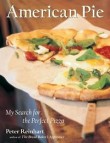
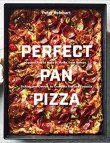
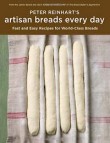
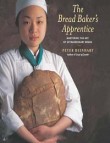
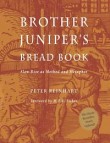
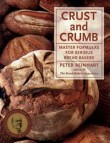
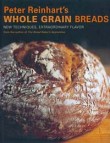
I was just discussing the 2nd one with my husband. A new pizza joint just opened near me and the guy has a pretty fancy wood fired oven. The pizza was mediocre at best. The pies that come outta my Wolf home oven are waaay better.
I didnt think there was such a thing as a “rational pizza maker”heaven forbid rationality in an emotional field!! Shouldnt school four be those who concentrate on the base as the most important aspect? A crappy base is a crappy base even with the best ingredients on it, and in any oven.
Understanding what your oven is capable of doing and how that affects your baking is the key to a myriad small and important details about your dough and the way you handle and shape it. Thick pies need slowers ovens and thin pies prefer fast ovens to avoid excess chew and toughness. The thin crust pizzas ARE hard to perfect in a typical home electric oven. Finding a source of fresh and sweet tasting Moz is also important for those thin de Napoli style pizzas. Pizza is simple food and errors are hard to hide. The most succesfull Pizzaoli’s use their eyes, sense of touch and taste to keep things up to par. High quality pie shops are exploding all over America. We finally care enough to search it out and reward the best with our business.